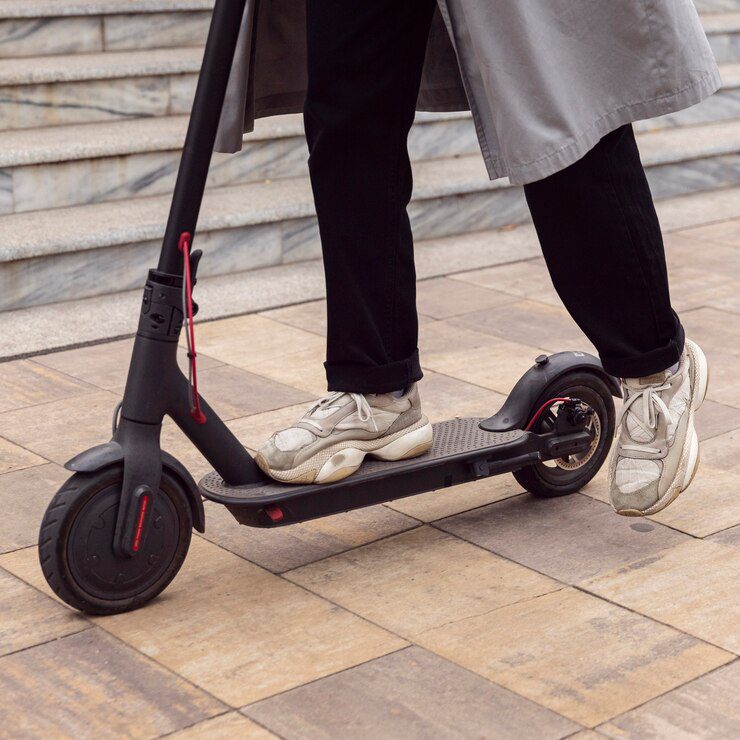
Electric scooters have become a popular solution for personal transportation—offering convenience, cost-efficiency, and a fun way to navigate urban spaces. Whether you’re commuting, running errands, or just looking for an eco-friendly ride, an electric scooter can be a practical choice. However, choosing the right one isn’t as simple as it sounds. In this electric scooter buying guide, we’ll walk you through key features, common pros and cons, and which type is right for different users.
Name | Style | Price |
|---|---|---|
Electric Scooter Max | R16- 7.8Ah | |
Electric Scooter Solid | R17- 7.8Ah |
What to Consider Before Buying
Before investing in an electric scooter, consider these essential factors:
⚡ Motor Power & Speed
- Entry-level scooters typically offer 250W–350W, suitable for flat roads and short distances.
- Higher-end models with 500W+ motors handle inclines and faster speeds more effectively.
🔋 Battery Life & Range
- Standard models offer 10–20 miles per charge.
- Long-range scooters can go 30 miles or more, ideal for commuters.
🛞 Wheel Type & Suspension
- Solid tires are low-maintenance but less shock-absorbent.
- Air-filled tires provide better ride comfort, especially on uneven terrain.
- Consider suspension systems for a smoother ride if your route includes bumpy surfaces.
⚖️ Weight & Portability
- Lightweight models (20–30 lbs) are easy to carry or fold for storage.
- Heavier scooters with bigger batteries are more durable but harder to transport.
🔐 Safety Features
- Look for reliable brake systems (disc, electronic, or foot brakes).
- LED lights, reflectors, and IP water-resistance ratings are important for safety in various conditions.
Product Summary: Comparison Table
| Use Case | Ideal Motor Power | Range | Key Features |
|---|---|---|---|
| City Commuters | 300W – 500W | 15–25 miles | Foldable, lightweight, good brakes |
| Long-Distance Travelers | 500W+ | 30+ miles | Large battery, suspension, LED lights |
| Students/Teens | 250W – 300W | 10–15 miles | Safe speed, compact size, affordable |
| Off-Road Riders | 600W+ dual motors | 25–40 miles | Big tires, shock absorbers, rugged build |
Pros & Cons
✅ Pros
- Eco-friendly: No gas, no emissions
- Low operating costs: Charge at home
- Time-saving: Avoid traffic and parking hassles
- Portable: Many models fold for easy storage
❌ Cons
- Limited range: May not be ideal for long commutes
- Weather dependent: Performance can drop in rain
- Initial investment: Quality models can be pricey
Who It’s Best For
- Urban commuters: Beat the traffic and save time
- College students: Zip across campus without the need for parking
- Eco-conscious users: Reduce carbon footprint
- Casual riders: Enjoy weekend cruises in parks or bike lanes
FAQs
🧭 How far can electric scooters go on one charge?
It depends on battery size. Average models reach 15–20 miles, while premium models offer 30+ miles.
🔋 How long does it take to charge?
Most scooters take 4–8 hours to fully charge.
🛠️ Are electric scooters easy to maintain?
Yes. Most require minimal upkeep, like keeping tires inflated and checking brakes periodically.
Final Recommendation
When choosing an electric scooter, think beyond just price. Consider how and where you plan to use it. Light commuters may prefer a foldable, compact option, while long-distance or off-road users need more power, range, and stability. Focus on features that fit your lifestyle—like battery capacity, weight, and terrain capability—and always prioritize safety.

